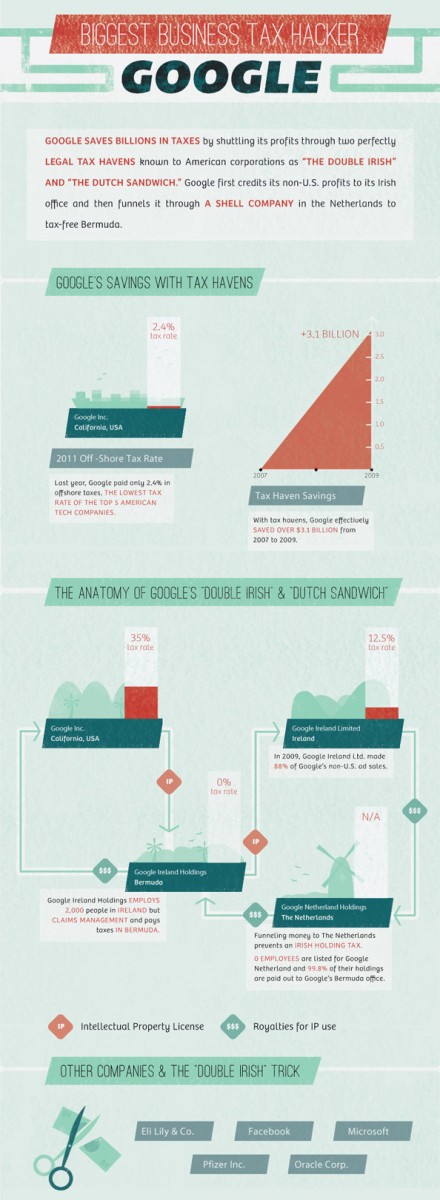
Google is under fire in the U.K. for its tax practices in the country, and a new key witness (who spoke to The Sunday Times) might put them in deeper hot water when he hands over a reported 100,000 emails and documents to the British Revenue & Customs (HRMC) services. Barney Jones, a former Googler who was at the company between 2004 and 2006, says he has material proof that Google’s London sales staff which would negotiate and close sales for the U.K. market, despite claiming its Dublin HQ handled finalizing all deals.
Jones was prompted to speak out by testimony given to the Commons Public Accounts Committee (PAC) last week by Google VP Matt Brittin, who said that London-based Google staff were never closing any ad sales deals, though some selling efforts were made there. Brittin had previously gone on record in November 2012 with statements asserting that no one in the London office was doing any kind of ad selling.
The matter of where the deals were finalized is especially important because if a sale closes in London, it’s likely they’d be taxable in Britain, rather than in the extremely low tax-rated Ireland. Jones told the Sunday Times that Google is fully aware of this, yet there are still records of Google staff closing major deals from companies like eBay and Lloyds TSB, but Google doesn’t seem at all certain that any of the documentation will absolutely prove that it has done anything strictly against UK tax law, according to a statement provided by Google's director of external relations Peter Barron to the Sunday Times.
“As we said in front of the public accounts committee, it is difficult to respond fully to documents we have not seen,” the statement reads. “These questions relate to Google’s business in the U.K. going back a decade or more. None of the allegations put to us change the fact that Google pays the corporate tax due on its U.K. activities and complies fully with U.K. law.” Google reiterated this statement to TechCrunch when we contacted them for comment.
Ireland uses its lower corporate taxation rate, which is 12.5 percent, or a little over half of Britain’s 23 percent, to attract big names who base their European corporate headquarters there, including Apple and Facebook in addition to Google. The search giant is currently under fire from U.K. parliament members for its tax practices, thanks to a Reuters investigation that revealed statements it made last November to the PAC about its London operations may not have been entirely accurate.
Amazon is next in the PAC’s sights for its U.K. tax practices, as Reuters has also recently uncovered evidence to suggest that it, too, is doing a lot of selling through an autonomous London-based unit, despite routing its sales on paper through a tax-exempt affiliate based in Luxembourg. In fact, for most on Google’s footing, avoiding taxes seems to be the exception, not the rule, and a recent piece by V3′s Madeline Bennett explains that even if this fresh round of hearings reveals that these schemes do run afoul of U.K. tax regulations, it’s unlikely we’ll see situations change all that dramatically. Governments are too dependent on the general economic benefits of hosting big corporations, and get too much out of awarding them contracts, she says, to risk doing long-term harm to those arrangements.
Still, what Jones claims to have would be incredibly embarrassing for Google, especially if it spells out in no uncertain terms that closing deals was regularly handled by Google’s London staff, in direct contradiction to what Brittin has told the committee, but until we see the goods, there’s no telling how deep down the rabbit hole his information actually goes.
3 WAYS TO SHOW YOUR SUPPORT
- Log in to post comments
















